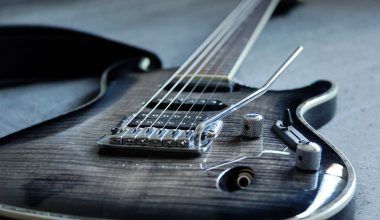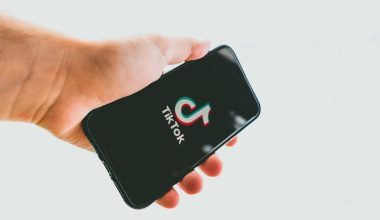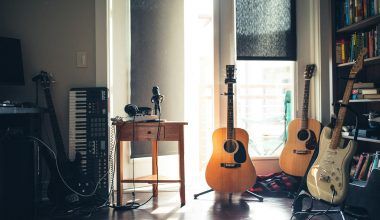Are you looking to take your home vocal recordings to the next level? Choosing the right microphone can make a huge difference in the quality of your recordings. Whether you’re a budding artist, a podcaster, or someone who simply loves to sing, finding the best mic for home vocal recording doesn’t have to be overwhelming. In this guide, we’ll break it all down for you in simple terms so you can make an informed decision.
Why Does the Right Microphone Matter?
Let’s start with the basics. When you record vocals, your microphone is the gateway between your voice and the recording device. It’s responsible for capturing all the nuances, tones, and dynamics of your voice. Using the wrong mic might make your recordings sound muffled, harsh, or just plain flat. The right microphone, however, brings out the best in your voice, ensuring your recordings are crystal clear and professional-sounding.
What Should You Look for in a Microphone?
Before diving into specific microphone models, it’s important to know what factors to consider when shopping for the best mic for home vocal recording. Here are a few things to keep in mind:
1. Type of Microphone
Microphones generally fall into two main categories: dynamic and condenser. For home vocal recordings, condenser microphones are typically the better choice because they are more sensitive and capture finer details. Dynamic mics, while durable, are more suited for live performances.
2. Polar Pattern
The polar pattern determines how a microphone picks up sound. For vocals, you’ll want a mic with a cardioid pattern. This pattern focuses on sound coming from the front while rejecting noise from the sides and back, making it ideal for home environments where background noise can be an issue.
3. Frequency Response
Every microphone has a unique frequency response. Some mics are tailored to highlight certain frequencies, like the warm mid-tones or bright highs of vocals. Look for a mic that complements your voice’s natural tone.
4. Budget
Let’s face it—cost matters. Thankfully, you don’t need to spend a fortune to get a great microphone. There are plenty of affordable options that deliver excellent sound quality for home recording setups.
Top Picks for the Best Mic for Home Vocal Recording
Now that you know what to look for, let’s explore some of the best microphones available. These options cater to different needs and budgets, so you’re sure to find one that fits your requirements.
1. Audio-Technica AT2020
The Audio-Technica AT2020 is a favorite among home recording enthusiasts. This condenser mic offers a balanced sound and excellent clarity, making it perfect for vocal recordings. It’s also reasonably priced, which makes it a great choice for beginners.
2. Rode NT1-A
If you’re looking for a microphone that delivers studio-quality sound, the Rode NT1-A is hard to beat. Known for its low self-noise, this mic captures even the smallest details in your vocals. It’s slightly more expensive but worth every penny for serious vocalists.
3. Shure SM7B
The Shure SM7B is a dynamic microphone, but don’t let that fool you. It’s a go-to choice for many professional podcasters and vocalists because of its warm and smooth sound. If you have a treated recording space, this mic can work wonders for your vocals.
4. Blue Yeti
For those who want a simple USB microphone, the Blue Yeti is an excellent option. It’s easy to use and doesn’t require an audio interface, making it ideal for beginners. While it’s not as detailed as high-end mics, it still provides great sound quality for home vocal recording.
How to Set Up Your Microphone for the Best Results
Getting a great mic is only half the battle. Setting it up correctly is just as important. Here are some tips to help you get the most out of your new microphone:
1. Choose the Right Space
Your recording environment plays a huge role in how your vocals sound. Ideally, you want a quiet, echo-free space. If you don’t have access to a sound-treated room, you can use items like blankets or foam panels to reduce reflections and background noise.
2. Use a Pop Filter
Pop filters are inexpensive accessories that prevent harsh “p” and “b” sounds from distorting your recording. They’re a must-have for anyone serious about vocal recording.
3. Maintain Proper Mic Distance
Staying about 6 to 12 inches away from the microphone ensures a balanced sound. Too close, and your voice might sound too boomy. Too far, and it might lack presence.
4. Invest in a Good Stand
A sturdy mic stand keeps your microphone stable and positioned correctly. This is especially important if you’re moving around while singing.
Do You Need Extra Gear?
In addition to your microphone, you might need a few other pieces of equipment to complete your home recording setup. Here’s what to consider:
1. Audio Interface
If you’re using an XLR microphone, you’ll need an audio interface to connect it to your computer. Interfaces like the Focusrite Scarlett series are popular for their ease of use and high-quality sound.
2. Studio Headphones
A good pair of headphones helps you hear the details of your recording. Look for headphones with a flat frequency response, like the Audio-Technica ATH-M50x, to ensure accurate sound monitoring.
3. DAW (Digital Audio Workstation)
To record and edit your vocals, you’ll need a DAW. Options like GarageBand (free for Mac users) or Audacity are great for beginners, while more advanced users might prefer software like Pro Tools or Logic Pro.
Common Mistakes to Avoid
Even with the best mic for home vocal recording, mistakes can ruin your sound. Here are some pitfalls to watch out for:
1. Ignoring Room Acoustics
Even the best mic can’t compensate for a noisy or echoey room. Take the time to optimize your recording space.
2. Clipping
Clipping happens when your audio levels are too high, causing distortion. Always monitor your levels and aim to stay in the green zone.
3. Overprocessing
It’s tempting to add lots of effects to your vocals, but too much processing can make them sound unnatural. Keep it simple and focus on capturing a great raw recording first.
Final Thoughts
Finding the best mic for home vocal recording is all about understanding your needs and exploring your options. Whether you’re working with a tight budget or ready to invest in top-notch gear, there’s a microphone out there for you. Remember, the most important thing is to experiment and have fun with your recordings. With the right mic and setup, you’ll be amazed at what you can achieve from the comfort of your home.
For further reading, explore these related articles:
- Circles Post Malone Lyrics – A Song About Love, Loss, and Life
- Billie Eilish’s Big Moment at the Oscars 2022: A Night to Remember
For additional resources on music marketing and distribution, visit DMT Records Pvt. Ltd..






